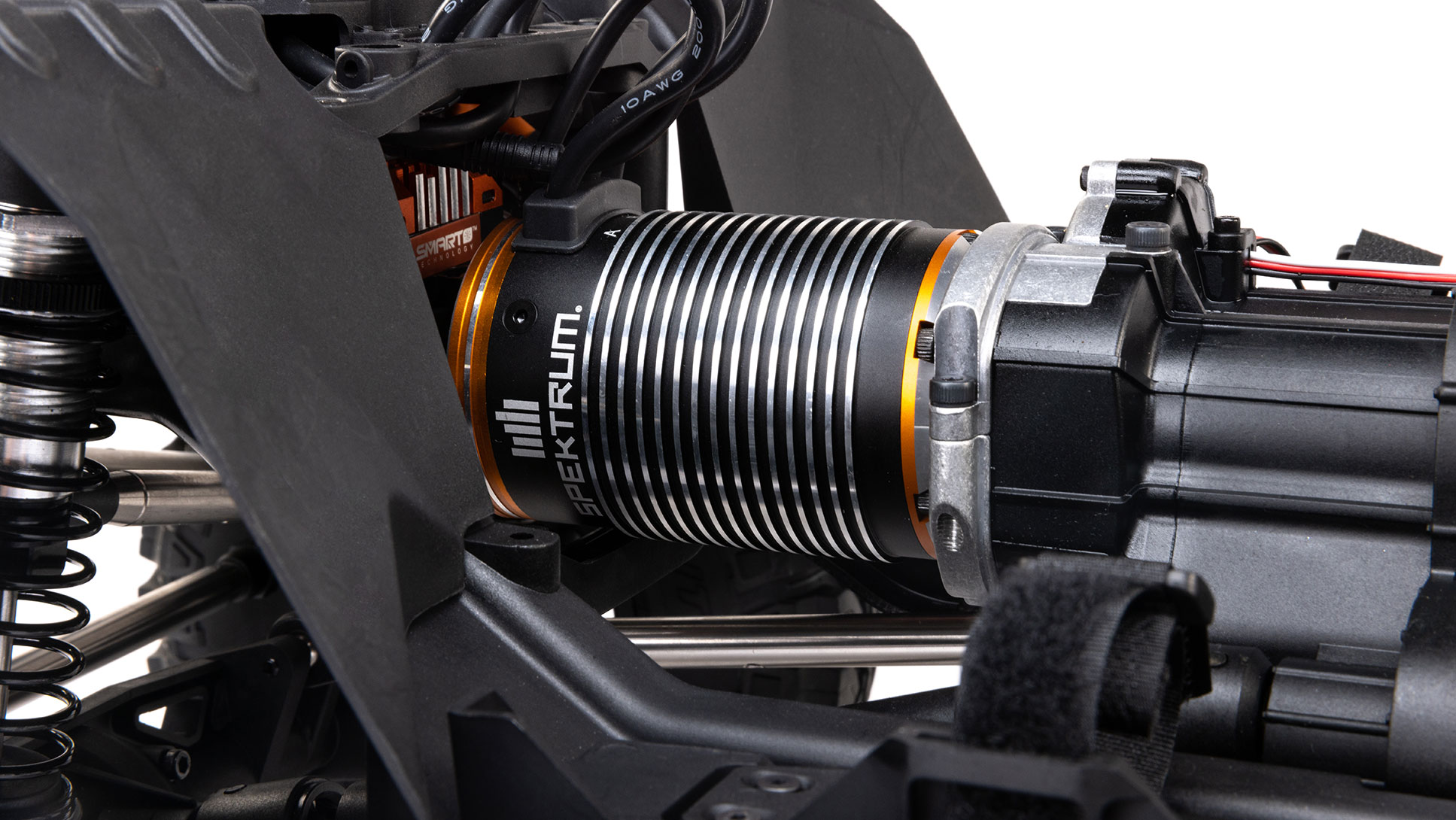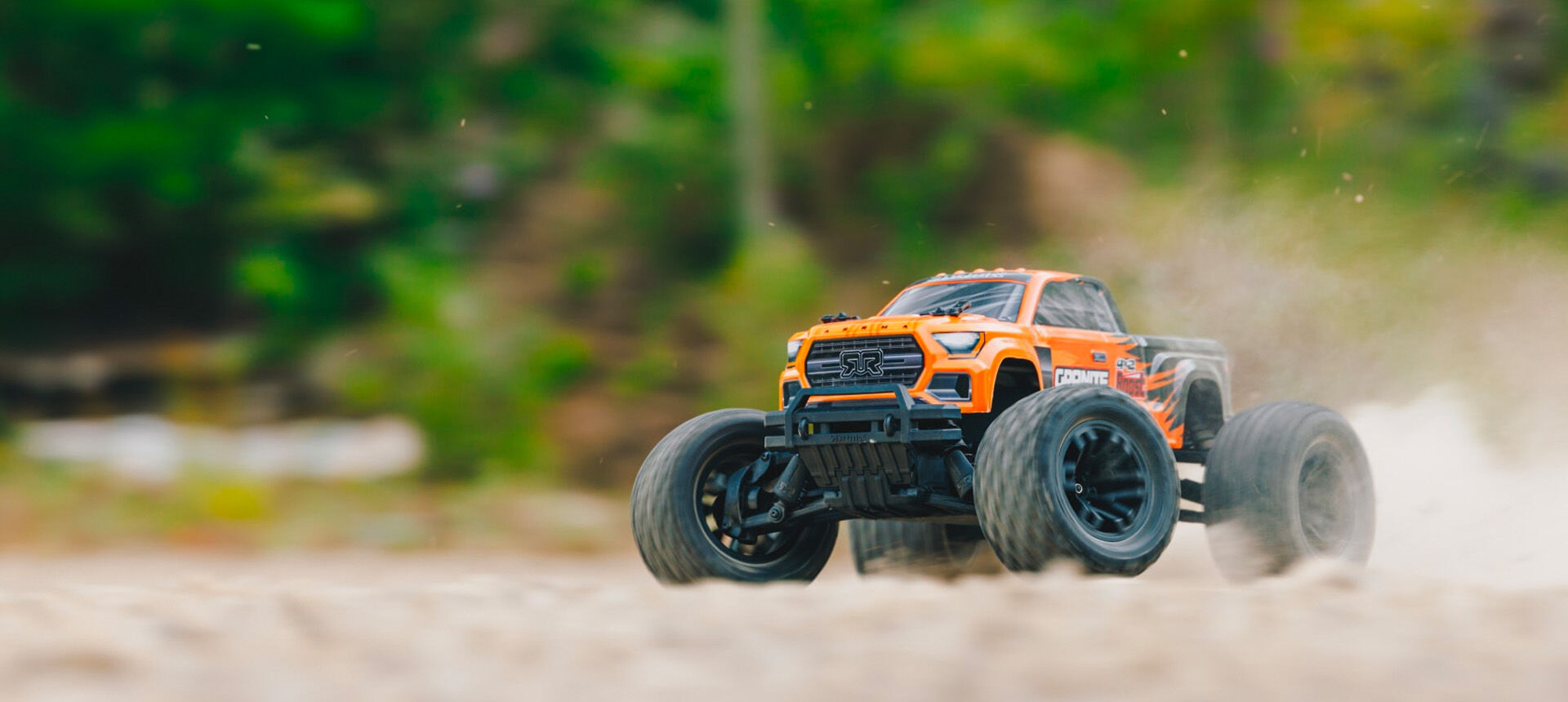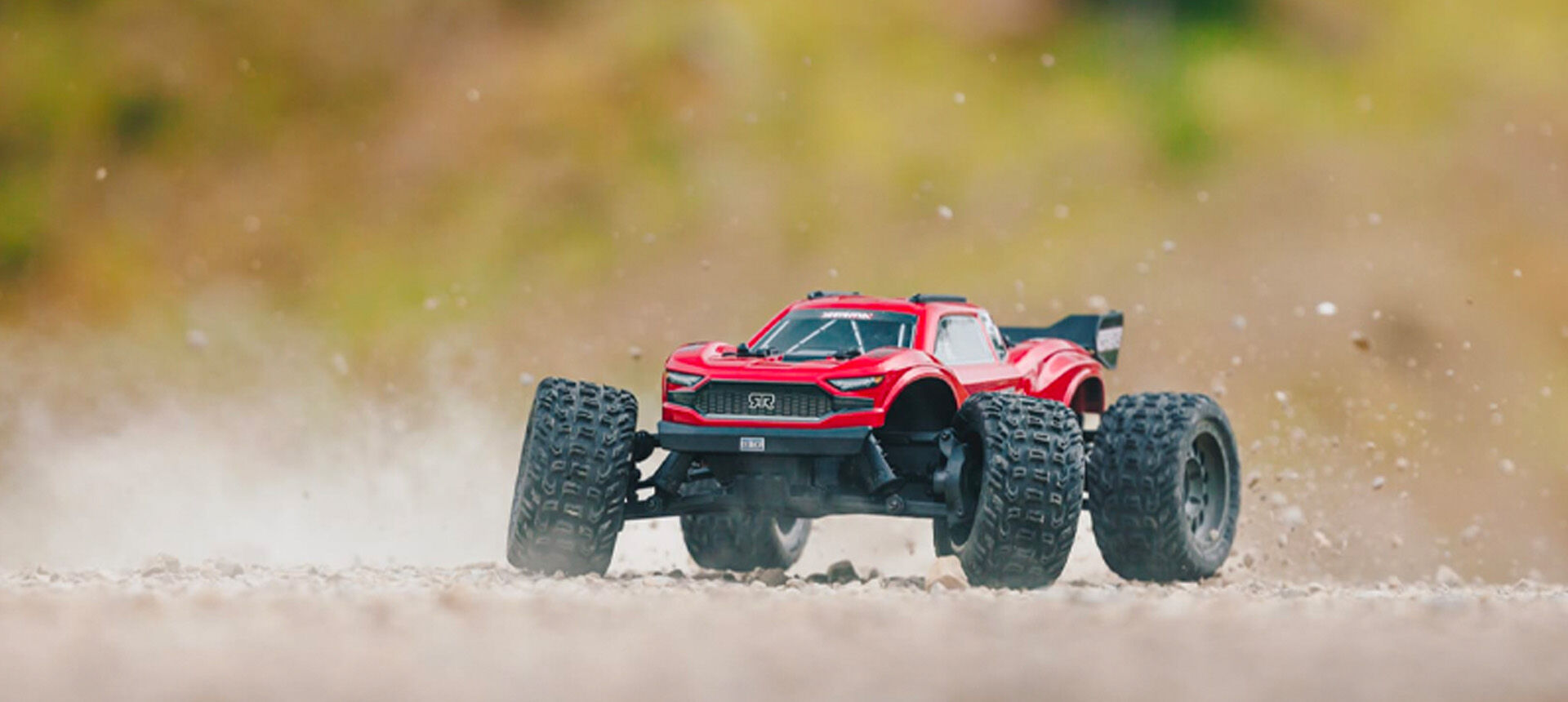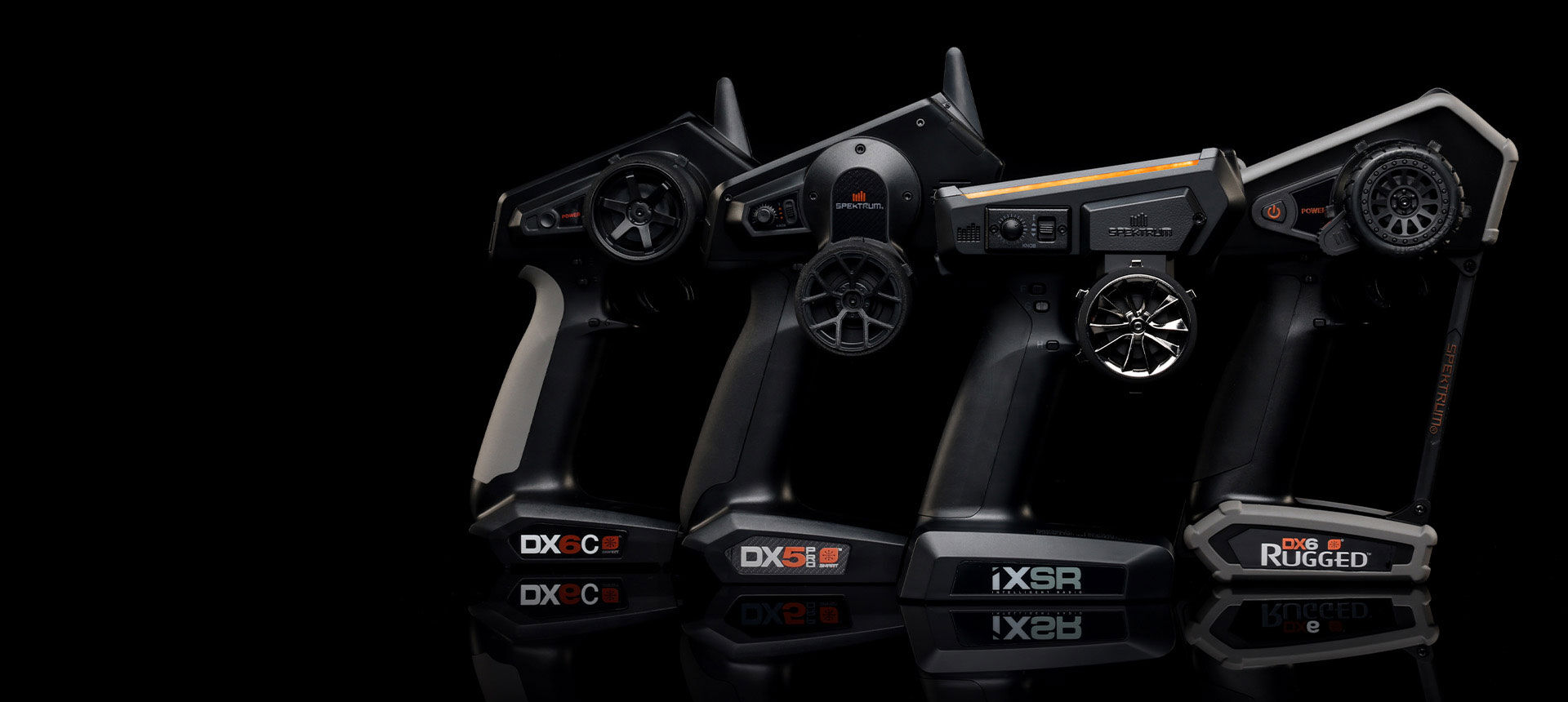
Brushless vs. Brushed Motors: Which is Right for Your RC Vehicle?
Posted: 8/12/25
When to Choose Brushless vs. Brushed Motors
The factor that typically plays the biggest role when deciding between brushless vs. brushed motors is how you plan to use your radio control car or truck. If you expect to compete in races or take part in high-speed bashing, you’ll likely want the efficiency and performance that a brushless motor will provide. For crawling over rocks and trails and for casual RC action, an affordable, high-torque, brushed motor may be enough.
Of course, budgets always factor into any choice of equipment, including the brushless vs. brushed motors decision. If saving money is a priority, then brushed motors may have an edge — at least initially. You’ll need to pay a bit more up front for a brushless motor, but its greater durability and lower maintenance could make it worth the extra money over time. Brushless motors are typically more robust and don’t require brush replacements.
These are just a few points to consider when deciding between brushed vs. brushless motors for your remote control car or truck. To help you make the best choice, let’s take a closer look at the advantages and disadvantages of each.
Brushed Motors
Brushed electric motors have a rotating coil (or armature) positioned between magnets. Carbon brushes supply electrical current through a commutator, which reverses the direction of the current. This reversal causes a magnetic interaction that pushes the coil, creating continuous rotation and turning electrical energy into mechanical motion.
If that sounds a bit complicated, here’s the key point to remember about how brushed motors work. For the motor to run, its brushes have to make direct physical contact with the commutator. It’s a proven, time-tested technology that’s been used in electric-powered RC vehicles for decades.
Advantages of brushed motors
- Affordability
- When you compare the prices of brushless vs. brushed motors, you’ll quickly see that brushed motors have the advantage when it comes to cost. That makes them a good choice for new RC hobbyists and for anyone who needs to keep an eye on their spending. And because you don’t have to match them with brushless-compatible ESCs (electronic speed controls), the cost of your RC car or truck’s power system is more economical overall.
- Reliability
- Brushed motors are well-suited for applications where torque and low-speed control are critical, such as rock crawling or driving on the trails.
- Availability
- Many ready-to-run RC cars and trucks come equipped out of the box with brushed motors, helping newcomers to get an affordable start in the hobby and making it easy for anyone to enjoy their advantages.
Disadvantages of brushed motors
- Lower Efficiency
- As noted earlier, brushed motors depend on physical contact between the brushes and the commutator in order to operate. That contact produces friction, which generates heat and causes a loss of energy. As a result, brushed motors perform less efficiently than brushless motors.
- Shorter Life
- In brushed motors, the constant contact between the brushes and the commutator causes wear. Eventually, the brushes will degrade to the point that they need to be replaced. The shorter lifespan and higher maintenance requirements of brushed motors can therefore be a drawback for some hobbyists.
- Limited Performance
- Though they have the edge in torque and low-speed control, brushed motors can’t match the high speeds and power output of brushless motors. It can also be more difficult to control their speed precisely compared to brushless motors. For these reasons, brushed motors are not the best choice for competitive racing and high-performance applications.
Brushless Motors
- Superior Efficiency
- Without brushes creating friction, brushless motors are able to convert more of their electrical energy into mechanical energy. That results in better performance for brushless vs. brushed motors and more efficient use of motor battery power.
- Higher Performance
- Brushless motors are able to reach higher speeds and produce more power than their brushed motor counterparts. For this reason, they’re better suited for competitive racing and other high-performance RC car and truck applications.
- Precision and Control
- The performance of brushless motors is not only smoother, but also more precise. You’re able to fine-tune specific motor characteristics to your needs, including acceleration and peak speed.
- Durability and Longevity
- Because they have fewer mechanical parts to wear out, RC brushless motors need much less regular maintenance than brushed motors. They generally last much longer. So although you’ll pay more for them up front, brushless motors are a better investment in the long run for many dedicated RC modelers.
Disadvantages of brushless motors
- Higher Cost
- Perhaps the biggest disadvantage of brushless vs. brushed motors is that brushless motors are more expensive, especially with the cost of a compatible ESC figured in. Brushless performance is certainly appealing, but the price can be an obstacle for new hobbyists or those on tight budgets.
- Complexity
- While the operation of brushed motors is pretty straightforward, brushless motors require a bit more technical knowledge to set up and program. For brand new RC car owners, the learning curve may present a challenge.
- Performance Overkill
- Not all RC car applications require the high performance capabilities of brushless motors. For casual RC car enthusiasts and those running crawlers or low-speed vehicles, the cost of a brushless vs. brushed motor simply may not be justifiable.
Final thoughts on brushless vs. brushed motors
Money, experience, and need are all points to keep in mind as you decide whether to install a brushed or a brushless motor in your RC vehicle.
Both motor types have their place. Brushed motors are affordable, easy to use, and well-suited for new hobbyists and low-speed applications. High-tech brushless motors shine in competitive applications, providing experienced RC drivers with superior durability and speed.
Once you understand the strengths and limitations of either choice, you’ll be able to choose the motor that best fits your goals and ambitions. Then you can enjoy the experience of driving RC cars and trucks to the fullest.
Shop the Story

Words by Wally Armstrong
Wally has been writing about the RC hobby since 1987, when he was hired by Hobbico as a Copywriter after completing his master’s degree in English in 1983 and teaching for several years. He managed the Hobbico copywriting team until 2018, when Horizon Hobby purchased the company and brought him on board as a Senior Copywriter. Wally especially enjoys getting a first look at new Horizon RC products from the Product Development teams – and having the privilege of sharing details about their innovations with RC hobby customers.
Related Articles

RC Cars for Sale
Looking for a fast RC car? Wondering which RC car is the fastest on different terrain? We've got all the details here in our Buyer's Guide for fast RC cars, trucks, buggies, and more!
Learn More

BOOST Your ARRMA RC Basher – The Best RC Upgrades
The ARRMA BOOST line are beginner-friendly RC trucks ready for bashing now and can easily be upgraded later. ARRMA BOOST are some of the easiest for the best RC upgrades!
Learn More

Spektrum introduces a new SLT – DSMR technology
The latest firmware update for Spektrum DSMR surface radios introduces a new SLT – DSMR technology.
Learn More